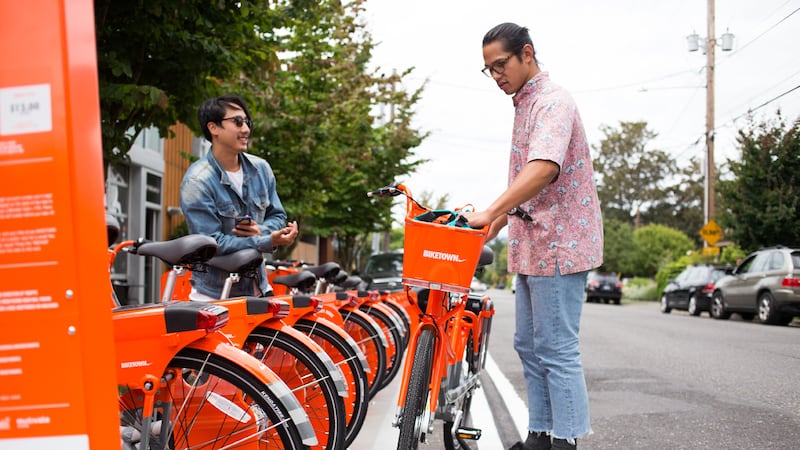A new study by Portland State University researchers rebuts the assumption that low-income communities are avoiding bike-share programs as harbingers of gentrification.
Cities across the U.S. have seen a sizable ethnic and class gap in the use of bike share programs. The PSU research, written up by the website City Lab in an article entitled "What Keeps Bike Share Programs White," challenges the received wisdom about why.
"One of the previous expectations or assumptions about bike share was that the reason that lower-income communities of color were not using it was due to a lack of interest," Nathan McNeil, a researcher at Portland State University's Toulan School of Urban Studies and Planning, tells City Lab.
The findings as reported by City Lab:
Instead, McNeil tells City Lab that fears of hidden costs and lack of knowledge about discount memberships and other programs are more to blame for the gap in ridership across the country.
Related: Biketown Isn't Just For Tourists. I Used It For a Week and It Was Great.
Wednesday marks the one-year anniversary for Portland's Biketown, which McNeil singled out for praise for eliminating low-income riders' overcharges for late returns of bikes.
